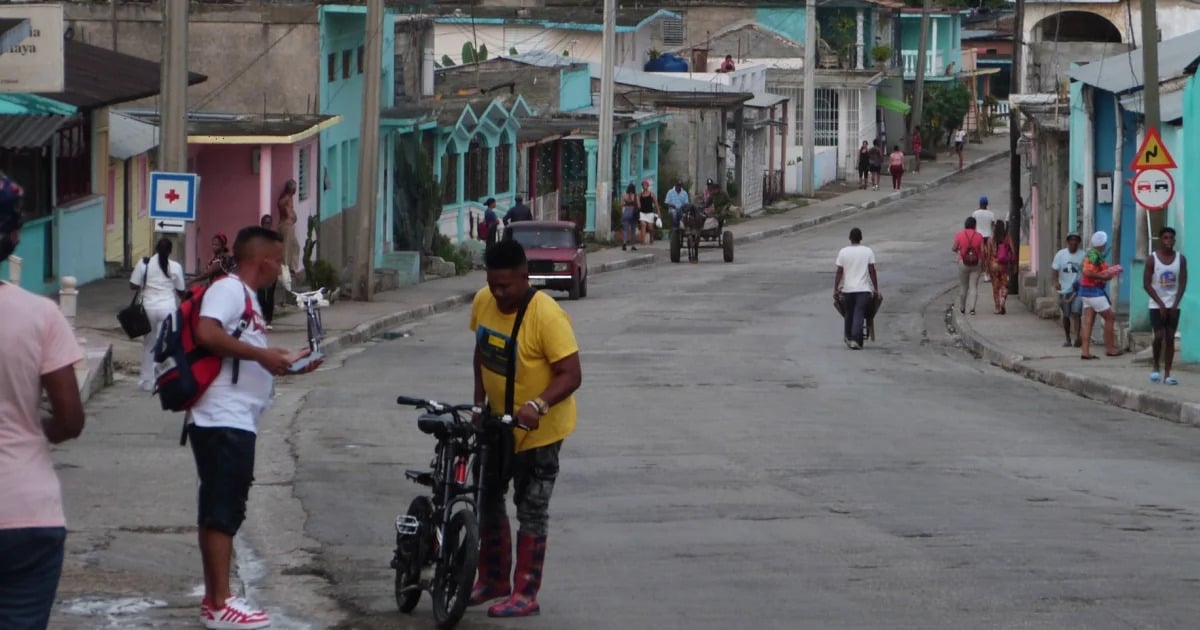Cubans are voicing their concerns that the country lacks the necessary conditions to combat the Oropouche fever virus (OROV) due to the accumulation of garbage dumps, sewage leaks, the absence of resources for fumigation, and frequent power outages.
Dr. Roberto Serrano, from the Santiago de Cuba municipality of Songo la Maya, which is the epicenter of the outbreak on the island, reported to Martí Noticias that many individuals are experiencing high fever and intense headaches, as well as pain in the sacro-lumbar region and the muscles of the lower limbs.
"This is accompanied by vomiting, diarrhea, and loss of appetite. It's quite a severe condition that significantly impacts people's health," he stated. "People are collapsing on the streets because it's very intense. I'm telling you this from personal experience, as I've been dealing with it for almost a week. I was only able to go to work today, thank God," he added.
Serrano also noted that the population lacks mosquito nets, making it extremely difficult to protect against the mosquito that transmits the virus, Culex quinquefasciatus, a tiny biting insect that is abundant in the region.
"When one person in a neighborhood gets infected, the whole neighborhood is affected. There are absolutely no resources available, neither in the clinics nor in the pharmacies, not even dipyrone to reduce the fever," he emphasized.
Another province where cases have been diagnosed is Cienfuegos. There, activist Juan Alberto de la Nuez Ramírez reported that doctors are advising patients to go home and drink fluids.
"There are no medications. Fumigation is not being carried out," he reiterated. According to De la Nuez Ramírez, there are dozens of sick individuals in the municipalities of Rodas, Aguada de Pasajeros, and Cienfuegos.
The Ministry of Public Health (MINSAP) has sent a letter to directors and heads of postgraduate departments on the island, warning that the current epidemiological situation could become "more complex" due to the increase in episodes of "nonspecific" fever in Santiago de Cuba.
Miguel Ángel Ruano, a Cuban doctor residing in Colombia and president of the Free Cuban Medical Guild, accessed this letter, in which a MINSAP official admits that "there are no vaccines or specific antiviral medications available to treat OROV infection." Therefore, patients are advised to follow palliative treatment, "focused on relieving pain, rehydrating the patient, and controlling any vomiting that may occur."
In an interview with CiberCuba, Ruano emphasized that "the healthcare system is not prepared to face" this epidemic, and the lack of resources could lead to many infections becoming complicated with meningitis or encephalitis, which are much more severe conditions.
Key Concerns About Oropouche Virus in Cuba
As the Oropouche virus spreads in Cuba, many questions arise about the country's preparedness and the impact on public health. Here are some frequently asked questions and their answers.
What is the Oropouche virus (OROV)?
The Oropouche virus is transmitted by the Culex quinquefasciatus mosquito and can cause symptoms such as high fever, headache, muscle pain, vomiting, diarrhea, and loss of appetite.
Why is Cuba struggling to control the Oropouche virus outbreak?
Cuba is facing difficulties in controlling the outbreak due to the accumulation of garbage, sewage leaks, lack of resources for fumigation, and frequent power outages. Additionally, the population lacks mosquito nets to protect against the virus-transmitting mosquito.
What measures are being taken to treat Oropouche virus patients in Cuba?
Currently, there are no vaccines or specific antiviral medications available for Oropouche virus in Cuba. Patients are advised to follow palliative treatment that focuses on pain relief, rehydration, and controlling vomiting.
